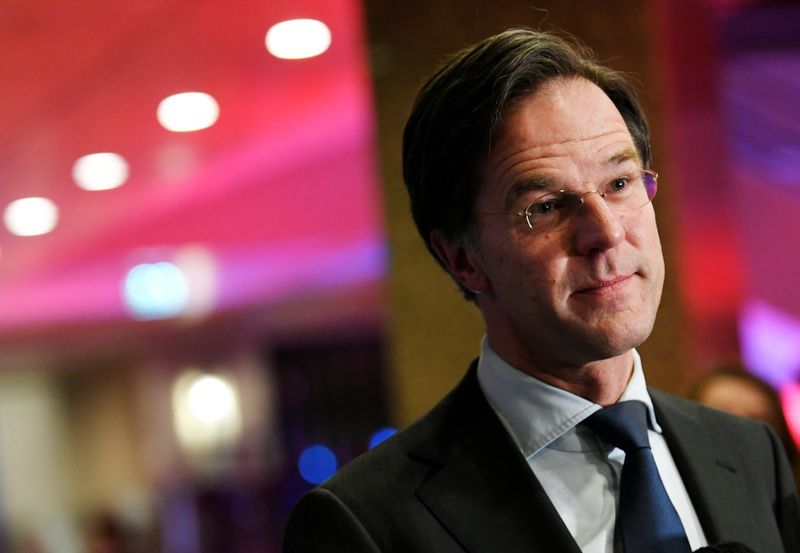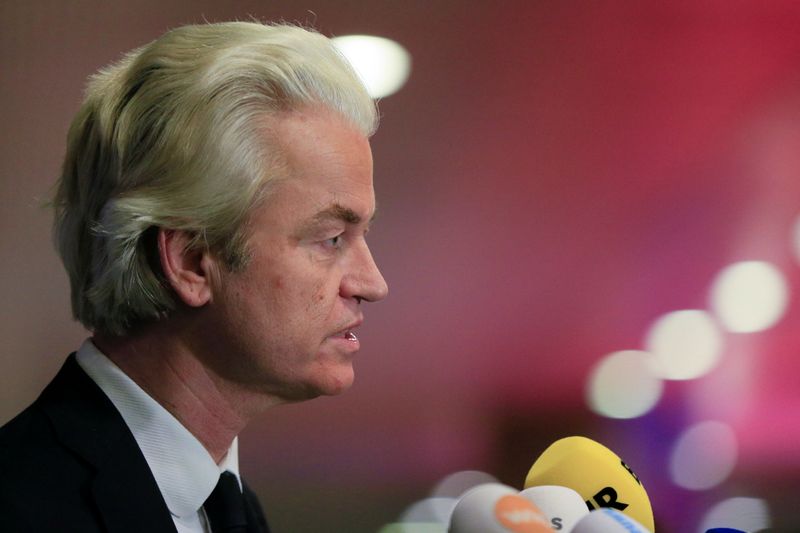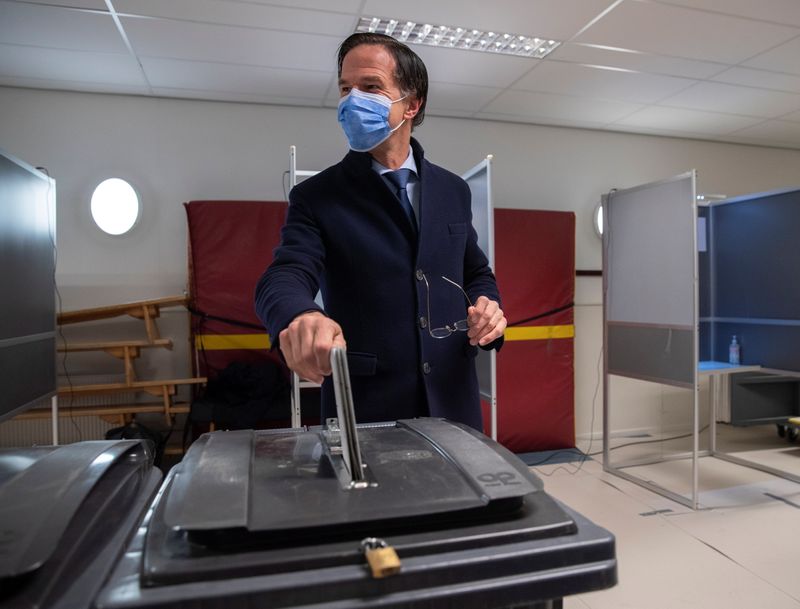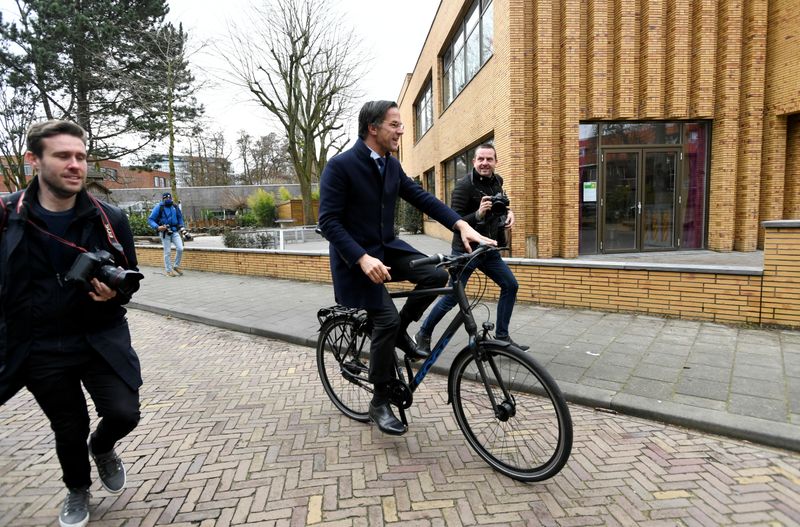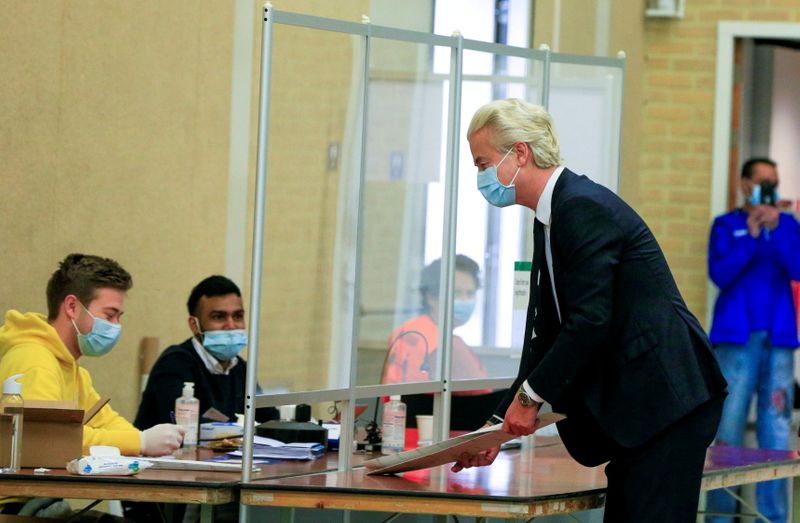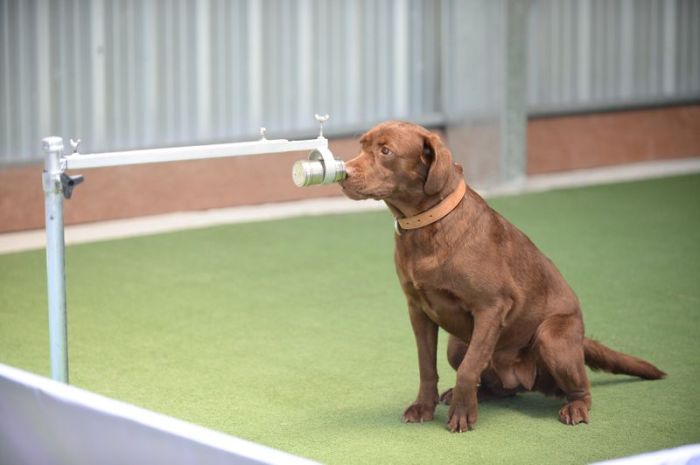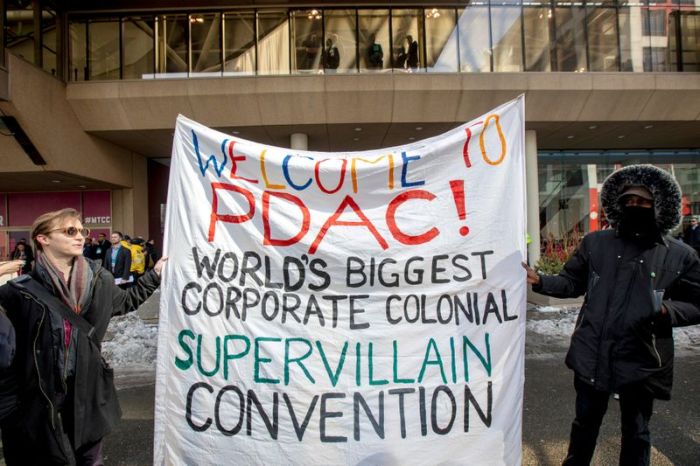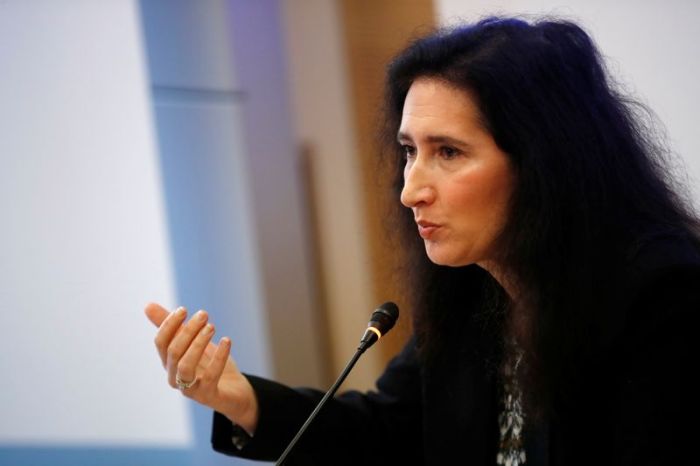AMSTERDAM (Reuters) – Dutch Prime Minister Mark Rutte was on track to win a fourth term in office on Wednesday, with his conservative party leading exit polls in elections dominated by the coronavirus pandemic.
Rutte’s VVD party was projected to take 36 out of 150 seats in the lower house, a clear mandate to form a new coalition government.
“I am extremely proud”, Rutte said, as he called his fourth consecutive election victory “uplifting”.
“The challenges ahead of us are enormous. In the coming weeks and months, we need to lead the country out of the corona crisis”, said Rutte, who has been prime minister since 2010.
The pro-European Union, centre-left D-66, led by former U.N. diplomat Sigrid Kaag, was seen coming in second with 27 seats, the best result in its 55-year history.
The initial numbers from the poll indicated that Rutte would need to form a coalition with at least two other parties to get a majority of 76 seats in parliament.
Despite the pandemic, voting turnout was 83%, about as high as four years ago.
Official returns are expected to be released throughout the night and Thursday morning, with final results announced on March 26.
Among major parties, the anti-Islam Freedom Party of lawmaker Geert Wilders was set to lose three seats to 17, the coalition member Christian Democrats drop five seats to 14 and Labour holding flat at nine.
The largest three parties aside from the Freedom Party have enough seats to form a majority government, in a process Rutte said he aimed to finish as quickly as possible.
Government formations in recent years, however, have taken months, as parties negotiated over detailed government plans.
In a sign of a further splintering of the electorate that has made it hard to form a stable government in recent years, a record 17 parties were set to get at least one seat, while only the three biggest parties won more than 10% of the total vote.
With the pan-European Volt party expected to enter parliament with three seats, explicitly pro-EU parties combined were projected to have won 20% of the vote, inching ahead of the three eurosceptic far-right parties combined.
The Netherlands is one of the first major European Union economies to hold elections during the COVID-19 crisis, and voting was held over three days to prevent the spread of the virus, which has killed more than 16,000 people in the nation of 17 million.
With a nighttime curfew in place due to continuing high infection rates, and a ban on public gatherings during the day, the campaign was conducted mostly through television debates.
Election night was also stripped of the usual scenes of halls full of cheering or disappointed party members, with political leaders limited to giving televised statements.
(Reporting by Anthony Deutsch, Bart Meijer and Toby Sterling; Editing by Mark Heinrich, Philippa Fletcher and Peter Cooney)

